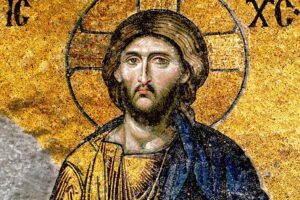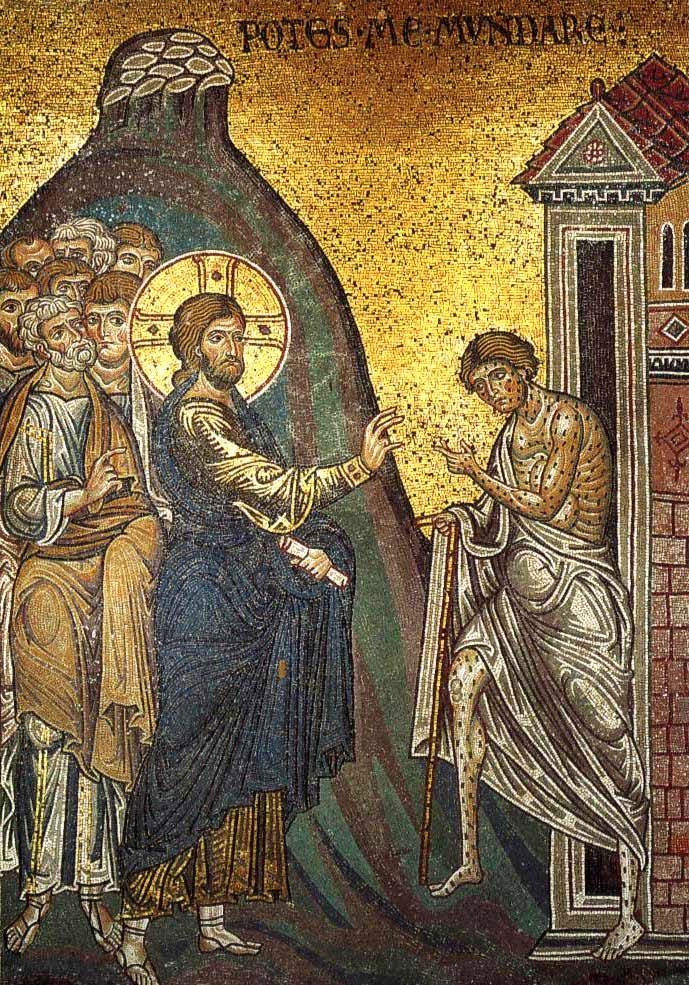7 But as you excel in everything—in faith, in speech, in knowledge, in all earnestness, and in our love for you—see that you excel in this act of grace also. 8 I say this not as a command, but to prove by the earnestness of others that your love also is genuine. 9 For you know the grace of our Lord Jesus Christ, that though he was rich, yet for your sake he became poor, so that you by his poverty might become rich. (2 Corinthians 8:7–9, ESVUK)
In this passage of Scripture, the “act of grace” that St Paul is referring to is the “taking part in the relief of the saints” (2Cor 8:4), which was a financial freewill offering given to the churches in Jerusalem that were suffering from poverty (1Cor 16:3). The Gentile churches of Macedonia, in a surprising act of generosity, contributed to this charitable cause, even contributing beyond their means, by their own will (2Cor 8:1–6).
The church in Corinth also expressed a desire to help the church in Jerusalem, and so in this passage of Scripture, Paul is encouraging them to fulfil their desire to help, not beyond their means, but according to what they’re able to give (2Cor 8:8–15). The purpose is so that there may be fairness in the churches, and that if the church in Corinth is ever in trouble financially, the other churches can pitch in and help them in their time of need (2Cor 8:13–15).
The passage that we first read above (2Cor 8:7–9) is the motivation for why the churches in Corinth ought to do this: because the Lord Jesus Christ himself, who sets the example for us to follow (1Pt 2:21), did it. As the one and only Son of God (Jn 3:16), Jesus Christ was rich in every way. Because Jesus created everything, and was never himself created (Jn 1:1–3, Col 1:16–17), everything rightfully belongs to Jesus. He lacks nothing. Yet, in spite of this, Jesus gave up every heavenly comfort to be born in this world into a poor family that could only afford two turtle doves, rather than a lamb, for Mary’s ceremonial purification, according to the Law of Moses (compare Lk 2:24 with Lev 12:6–8). Jesus’ own ministry was wrought with difficulties as well, as Jesus himself said (referring to himself as the Son of Man):
“Foxes have holes, and birds of the air have nests, but the Son of Man has nowhere to lay his head.” (Luke 9:58)
Jesus had no permanent home during his three-year ministry. Finally, and most significantly, Jesus gave up immortality, to take our sins upon himself on the cross and die the death we deserved, in spite of his sinlessness (1Pt 2:21–24). This act of grace of Jesus was so that we could be enriched. Jesus became poor so that we might become rich.
When we think of being “rich” nowadays (the word Paul originally used in that passage is from the Greek word plouteó [πλουτέω]), we usually picture stacks of money, private jets, or palaces. But that’s not what the Bible is talking about here. After all, Jesus uses this same word (plouteó) in the parable of the rich fool, which talks about a foolish rich man who tells himself to just relax and enjoy the riches he amassed in life, but then dies suddenly and unexpectedly. The lesson is:
So is the one who lays up treasure for himself and is not rich [from plouteó] towards God.” (Luke 12:21)
These are the “riches” that St Paul is talking about. Jesus became poor so that we might be rich towards God. Rich in faith towards him, faith that manifests itself in love. Rich in confidence, but also fearful reverence, towards him. Rich in obedience towards him. In other words, St Paul is talking about spiritual richness. The same kind of spiritual richness that allows even us to give generously (not just our money, but also our time, energy, and possessions), just like the Macedonian and Corinthian Christians.
Our small acts of grace are only possible because of Jesus’ ultimate act of grace. If Jesus had not died for our sins—our wrongdoings—and come back to life on the third day (Ac 2:32), then we would still be dead in our sins (1Cor 15:17). But Jesus has died, he has risen, and he is alive today, seated at the righthand of God the Father almighty. Jesus ascended into Heaven not so that he could get away from the troubles and poverty of the Earth. Far from it. Jesus ascended “in order to fill the whole universe” (Eph 4:10). Jesus fills all things so that just as he poured out his grace for the world on the cross, he could continue giving his grace to more and more people, which he does by the power of the Holy Spirit, who seals Christians for the final day of judgement and redemption (Eph 4:30).
The Lord Jesus Christ keeps on giving generously, even beyond what we sinners deserve. Paul also uses the same word “plouteó” when describing how Jesus gives his riches to those who call on him in faith. He writes:
… 9 because, if you confess with your mouth that Jesus is Lord and believe in your heart that God raised him from the dead, you will be saved. 10 For with the heart one believes and is justified, and with the mouth one confesses and is saved. 11 For the Scripture says, “Everyone who believes in him will not be put to shame.” 12 For there is no distinction between Jew and Greek; for the same Lord is Lord of all, bestowing his riches [from plouteó] on all who call on him. 13 For “everyone who calls on the name of the Lord will be saved.” (Romans 10:9–13)
When or if we’re successful in life, we tend to think of ourselves as lords, so-to-speak. That is, as people who either rose to the ranks because of our hard work, or who had the privilege of being born in the ranks, and who therefore rightfully deserve the glory. But that’s not true. We’re not lords, but beggars. Beggars who have received all good things from God our Father (Jas 1:17), and who continue to rely on God for all good things in life.
If we were earthly lords (i.e. kings and queens), we would probably keep most, or at least a large portion, of the riches to ourselves. But Jesus isn’t like that. Jesus is a Lord unlike any other human lord, because Jesus does not withhold any of his riches from his followers, but shares all of his riches with those who call on him. Jesus, the Lord of all the universe (Ac 10:36), is the Lord who gave the ultimate act of redemption on the cross for us sinners and the Lord who keeps on giving. The Bible promises that the Lord Jesus bestows his riches—his riches of salvation and eternal life—on all who call on him—all who call on him as their resurrected Lord and Saviour.
If you’re ever finding that you lack meaning in your life; if you’re ever struggling to find hope; if you find yourself wondering how to find joy again, then know this: that Jesus Christ enriches your life in every meaningful way. All the meaning that you might lack; the hope and joy that you might have lost; the enthusiasm that you once might have had for life; all of these you can find in Jesus Christ, your Lord and Saviour, who keeps on giving his riches out of his abundant grace and love. Remember that although Jesus’ poverty led to his death on the cross, after the cross came the joy of his resurrection and ascension.
Jesus promises that we all have our crosses to carry (Mt 16:24), but by the power of the Holy Spirit, he promises to be with us throughout all our trials (Mt 28:20; Jn 16:12–15). So, we need not despair or be worried. Jesus, the Lord who gives, ensures that all our daily needs are met (Mt 6:9, 11). Jesus, the Lord who gives, lives in the hearts of Christian believers (Eph 3:17). Jesus, the Lord who gives, eternally saves all who call on his name (Rm 10:13). Jesus became poor temporarily so that we might be rich eternally; rich towards God, and in the salvation that Jesus has promised to all who believe in him.
Don’t trust in earthly riches that perish. Trust in the eternal spiritual riches of Jesus Christ, who gives out of his grace abundantly to all who believe in him. Then we will truly be enriched by Jesus Christ in every way. And then, by Jesus’ grace, with the help of the Holy Spirit, we’ll be empowered to give our time, energy, and possessions to others, as we are able, to the glory of God the Father.
See Also






